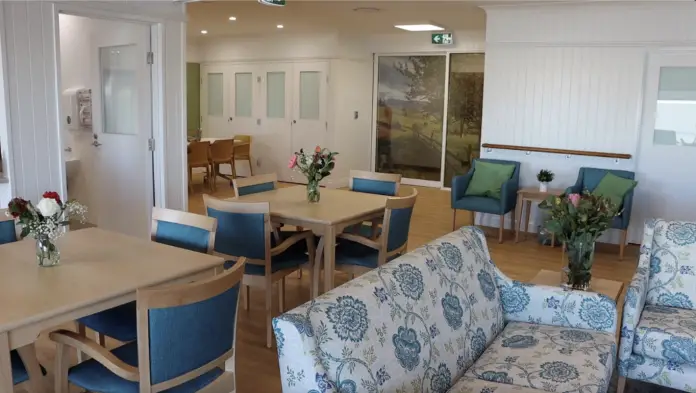In this profile, we look at Anglicare Southern Queensland and its Specialist Dementia Care Program (SDCP) – awarded highly commended for Dementia care in the 2022 Future of Ageing Awards.
As the number of people with dementia continues to increase in Australia, there is a growing need for specialised care services to cater to those living with dementia who require higher levels of support.
Anglicare Southern Queensland’s St Martin’s Residential Aged Care Facility recognised this need and was successful in winning the tender for Brisbane’s Metro North region to provide specialised care through the Specialist Dementia Care Program (SDCP). This awards profile explores the successful implementation of the SDCP, which focuses on addressing the underlying issues/triggers of an individual’s responsive behaviours with the view of being able to transition back to a mainstream aged care service.
Background
The SDCP is a Commonwealth Government initiative that was implemented across Australia in 2019/2020. The program caters to residents living with dementia experiencing severe responsive behaviours, and its main goal is to provide specialised care that mainstream aged care services struggle to provide. Historically, these clients would be admitted to the acute care sector, leading to poor care outcomes and trauma for the person living with dementia and their loved ones. However, the SDCP addresses these issues by providing a high level of tailored care to residents with dementia, exhibiting severe behavioural and psychological symptoms, who are unable to be effectively cared for by mainstream aged care services.
A good example of the implementation of a Commonwealth Health Department initiative.
2022 Future of Ageing Awards judge
Implementation
Since opening in 2020, St Martin’s SDCP has demonstrated a positive impact on the quality of life of program participants and the wider health system. The program provides transitional, temporary support, with an average expected length of stay of around 12 months. The SDCP team at St Martin’s works together to provide quality care to these residents by addressing unmet needs, implementing behaviour management best practices, and providing understanding and reassurance to a group of consumers that have been bounced around the health system.
The SDCP team at St Martin’s provides best-practice care, without restraints, in a dementia-friendly environment to reduce or stabilise the client’s behavioural and psychological symptoms. The living environments have been designed for people living with very severe dementia, to promote familiarity, stimulation, and independence. The program supports the client to move into less intensive care settings when they no longer need SDCP care.
Results
The St Martin’s SDCP has been very successful, with 18 residents going through the program, with 11 of them successfully transitioning into mainstream residential aged care. Through the SDCP’s robust admission process, people living with severe behavioural and psychological symptoms of dementia (BPSD) have been transferred in a timely manner from the acute care sector, resulting in better outcomes for the individual and freeing up highly desired acute care beds.
Anglicare Southern Queensland’s SDCP has also formed a support network for affiliated Residential Aged Care facilities (homes where an SDCP resident is transferred) by providing practical and hands-on support that empowers them to better care for someone experiencing severe BPSD.
The Specialist Dementia Care Program implemented by Anglicare Southern Queensland’s St Martin’s Residential Aged Care Facility has demonstrated the importance of specialised care for residents with dementia who require higher levels of support. By addressing the underlying issues/triggers of an individual’s responsive behaviours, the SDCP has provided tailored care that promotes familiarity, stimulation, and independence in a dementia-friendly environment. The success of the program has led to positive outcomes for the individual and the wider health system, freeing up acute care beds and empowering affiliated Residential Aged Care facilities to better care for someone experiencing severe BPSD.
Watch our interview with Anglicare and Obvious Choice










